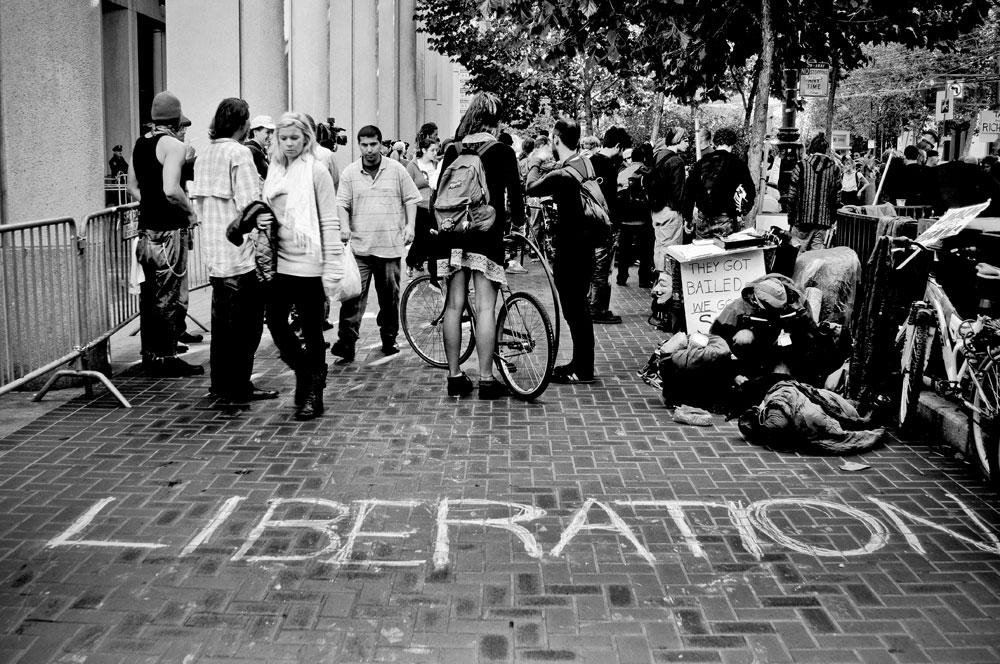
Every few months, the word liberation trends again. It shows up in campaigns, captions, and conference titles. But in a climate where rights are being rolled back and control is being repackaged as safety, it feels necessary to pause and ask—what does liberation actually mean right now?
The Meaning of Liberation
The word liberation comes from the Latin liberare—to set free—and liber, meaning a free person. At its core, liberation is both freedom from constraint and the recognition of personhood. It’s the condition in which a human being can move, speak, rest, and relate in alignment with their own truth.
Liberation isn’t abstract. It’s measurable. You can see it in how much control people have over their bodies, their labor, their time, and their voice. And by that measure, many of us are living with less freedom than the language of progress suggests.If those things are restricted, then liberation is still a work in progress.
The Layers That Keep Liberation Out of Reach
Liberation doesn’t fail because people don’t want it. It fails because systems depend on us not having it.
Let’s look at the layers.
Structural
Racism, patriarchy, and capitalism are designed to keep certain people overworked, underpaid, and constantly proving their worth. Each one benefits from exhaustion. Each one profits when rest, pleasure, and self-determination are treated like luxuries.
Cultural
We’re conditioned to believe that authority equals safety, even when authority harms us. From school to the workplace, obedience gets rewarded and boundaries are punished. That’s how control becomes culture.
Psychological
Many of us were raised to believe that someone else’s comfort matters more than our truth. That belief is called internalized hierarchy. It’s what makes people shrink in rooms where they should be leading, and apologize for taking up space they’ve already earned.
Somatic
Then there’s the body, the part most systems ignore. Bodies remember what kept them safe. If compliance kept you alive, your body learned that stillness is safety. If speaking up brought harm, your body learned silence as survival.
These are adaptations, not flaws. But they’re stored in the nervous system, which means they don’t dissolve with theory alone.That memory can’t be reasoned away, it has to be retrained.
Where Kink Becomes Relevant
This is where kink enters the conversation as a practice of liberation.
Kink is a set of intentional, consent-based structures for exploring power, sensation, and identity. It operates through negotiation and mutual design. In a kink scene, everyone involved defines the terms of engagement: roles, boundaries, safewords, aftercare. Every action is grounded in choice.
That framework allows the body to experience power differently:
- You can speak boundaries and have them respected.
- You can surrender without losing agency.
- You can experience intensity and stay connected to safety.
- You can rebuild trust through structure instead of fear.
In a world where power is usually hidden or abused, kink makes it visible and deliberate. That visibility teaches. It gives people a way to study how power feels, what safety actually requires, and how consent sounds in real time.
For many, this becomes a nervous-system level practice of freedom by the body learning that autonomy and connection can coexist.
Why This Matters Now
We are living through a time of tightening control over bodies, classrooms, books, and identities. When systems reduce complexity to compliance, liberation has to become embodied to survive.
Kink, and the frameworks built from it, such as Therapeutic BDSM™ and Self-Reconciliation Therapy™, offer a structured way to practice that embodiment. They give professionals and everyday people tools to work with power consciously, rather than be shaped by it unconsciously.
Liberation is the capacity to choose, to stay present, and to hold power with integrity. It’s the ability to build standards of care that don’t depend on external permission.
The Work Ahead
Structural change takes time. But the internal, cultural, and somatic work of liberation can begin anywhere people are willing to examine how power lives in their body and in their practice.
That’s the work I’m committed to through the Kink Professional Standards Alliance. It’s the work of creating frameworks, language, and communities that understand liberation as something practiced, not granted.

Recent Comments